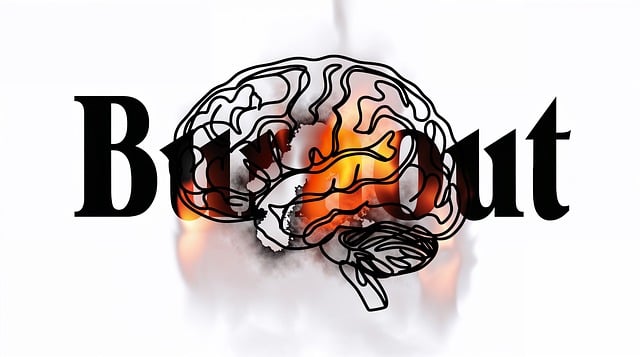Wheat Ridge Young Adults Therapy focuses on addressing root causes of substance abuse in young adults through empathy, mental wellness coaching, and evidence-based therapies like CBT, DBT, and MI. They prioritize building resilient coping mechanisms, stress management skills, and community engagement to reduce vulnerability, enhance emotional intelligence, and promote long-term mental wellness. By integrating these strategies, Wheat Ridge Young Adults Therapy aims to empower young adults with tools for overcoming substance abuse and fostering a sober lifestyle.
Substance abuse among young adults remains a pressing concern, with far-reaching consequences. This article explores comprehensive risk reduction strategies tailored to address this issue head-on. By delving into the root causes, from social pressures to mental health disparities, we provide insights into creating supportive environments at home and school. We also highlight evidence-based therapies, emphasize the importance of stress management, and discuss the role of community engagement and peer support networks, leveraging expertise from Wheat Ridge Young Adults Therapy to foster long-term recovery.
- Understanding the Root Causes of Substance Abuse among Young Adults
- Creating a Supportive Environment at Home and School
- Evidence-Based Therapies for Effective Risk Reduction
- Building Resilient Coping Mechanisms and Stress Management Skills
- Community Engagement and Peer Support Networks for Long-Term Success
Understanding the Root Causes of Substance Abuse among Young Adults

Substance abuse among young adults is a complex issue that often arises from underlying factors that require careful consideration. Wheat Ridge Young Adults Therapy highlights the importance of understanding the root causes to effectively address and prevent such behaviors. Many young individuals turn to substances as a coping mechanism for various challenges they face, including stress, anxiety, depression, or trauma. Identifying these triggers is a pivotal step in developing tailored interventions.
Empathy-building strategies and mental wellness coaching programs play a crucial role in this process. By fostering open communication and providing support, therapists can help young adults develop healthier coping mechanisms and build resilience. The goal is to enhance their ability to manage emotions, reduce vulnerability, and make informed choices regarding substance use. These interventions aim to boost confidence and provide the tools necessary for long-term mental wellness development.
Creating a Supportive Environment at Home and School

Creating a supportive environment at home and school is a cornerstone in preventing and mitigating substance abuse among young adults. At home, open communication about the risks and consequences of drug use is paramount. Parents or guardians can foster an atmosphere of understanding and care by actively listening to their children’s concerns and experiences without judgment. This approach encourages young individuals to share their struggles openly, seeking help early on, which is crucial for Wheat Ridge Young Adults Therapy.
Schools play a vital role in this process through comprehensive Mental Health Education Programs Design that integrate compassion cultivation practices. By teaching students Conflict Resolution Techniques and promoting emotional intelligence, schools can equip them with essential tools to navigate challenging situations without resorting to substance abuse. These programs also help to reduce stigma around mental health issues, encouraging students to seek support when needed, ultimately contributing to a healthier and more supportive community.
Evidence-Based Therapies for Effective Risk Reduction

Evidence-based therapies play a pivotal role in reducing risks associated with substance abuse among young adults. Therapies like Cognitive Behavioral Therapy (CBT), Dialectical Behavior Therapy (DBT), and Motivational Interviewing (MI) have proven to be highly effective in treating substance use disorders and preventing relapses. These therapeutic approaches focus on addressing the underlying emotional and psychological factors that contribute to drug abuse, helping individuals develop healthier coping mechanisms.
For instance, Wheat Ridge Young Adults Therapy incorporates these evidence-based strategies into its risk management planning for mental health professionals. By fostering emotional intelligence through CBT, young adults learn to recognize and manage their emotions effectively. Self-care routine development is another crucial aspect, where individuals are guided to prioritize their mental well-being through structured activities, which can reduce stress and lower the likelihood of turning to substances as a coping mechanism.
Building Resilient Coping Mechanisms and Stress Management Skills

Building resilient coping mechanisms and effective stress management skills is a vital component of risk reduction for substance abuse among young adults. Wheat Ridge Young Adults Therapy emphasizes the importance of equipping individuals with tools to navigate life’s challenges without turning to substances as a crutch. Through therapy, clients learn to identify and develop healthy coping strategies tailored to their unique needs. This involves exploring various self-care practices, such as mindfulness meditation, exercise, and journaling, to manage stress and emotions in a constructive manner.
By focusing on mood management and coping skills development, Wheat Ridge Young Adults Therapy empowers individuals to build mental fortitude. These evidence-based strategies help young adults confront and overcome triggers, reduce vulnerability to substance abuse, and foster long-term recovery. The goal is to enable them to face life’s ups and downs with resilience, promoting overall well-being and a sober lifestyle.
Community Engagement and Peer Support Networks for Long-Term Success

Community engagement plays a pivotal role in mitigating substance abuse among young adults. Programs like Wheat Ridge Young Adults Therapy emphasize the power of peer support networks for long-term success. By fostering connections and shared experiences, these networks provide an essential safety net that reinforces recovery efforts. Engaging with supportive communities allows individuals to cultivate resilience, offering encouragement during challenging times and reinforcing positive behaviors.
Incorporating self-care routine development, mindfulness meditation, and mind over matter principles further strengthens this support system. These practices empower young adults to prioritize their mental health, promoting better coping mechanisms and stress management. By integrating these strategies into daily life, individuals build a robust foundation for sustaining recovery, ensuring they remain on the path to long-term wellness.
Addressing substance abuse among young adults requires a multi-faceted approach. By understanding the underlying causes, fostering supportive environments, implementing evidence-based therapies, and promoting resilient coping mechanisms, we can effectively reduce risks. Community engagement and peer support networks play a pivotal role in ensuring long-term success, as seen in programs like Wheat Ridge Young Adults Therapy. Integrating these strategies creates a robust safety net for young adults, guiding them towards healthier choices and a brighter future.














